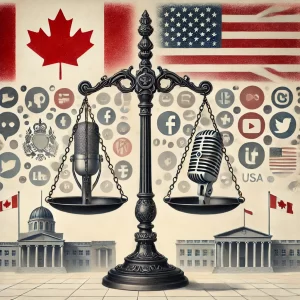
In a heated and highly anticipated presidential debate, Donald Trump and Kamala Harris faced off for the first time in the 2024 election cycle. The debate, held at the National Constitution Center in Philadelphia on September 10, 2024, provided a platform for both candidates to present their radically different visions for the future of the United States. Here are the key takeaways from the fiery exchange that left viewers with plenty to ponder.
1. Foreign Policy Clash: Russia, China, and Israel
Foreign policy took center stage as both candidates traded sharp barbs over the U.S.’s role on the global stage. Kamala Harris lambasted Trump for his friendly relationships with authoritarian leaders like Russian President Vladimir Putin. Harris warned that under Trump’s leadership, Putin would “eat you for lunch,” suggesting that Trump’s coziness with the Kremlin could embolden Russian aggression, particularly toward Ukraine and the rest of Europe.
Trump countered these accusations by targeting Harris’s stance on Israel. In a dramatic claim, Trump warned that if Harris became president, Israel would be “gone” within two years. He further accused her of neglecting America’s key allies while focusing on her progressive domestic agenda. Harris firmly rejected this, calling Trump’s statements “false and inflammatory”(Poynter)(GulfNews).
2. Economic Policy and China Relations
One of the central arguments in the debate revolved around economic policy, specifically regarding relations with China. Harris criticized Trump’s handling of trade relations and accused him of “selling out” American technology to China, referencing Trump’s decision to allow U.S. companies to sell advanced semiconductors to Chinese firms. Harris positioned herself as a defender of American technological and economic dominance, arguing that the U.S. needs to win the competition for the 21st century, particularly against China.
Trump, in response, attacked Harris’s economic plans, claiming that her proposed policies would lead to runaway government spending, higher taxes, and job losses. He labeled her a “Marxist,” a sharp contrast to his own vision of cutting taxes and reducing government intervention in the economy(Poynter)(GulfNews).
3. Race and Social Issues: A Deep Divide
Racial tensions and social justice were another flashpoint in the debate. Harris accused Trump of using race to divide the nation throughout his political career, pointing to his rhetoric during the 2020 Black Lives Matter protests and his efforts to appeal to white nationalist groups. She argued that the U.S. deserves a leader who will unite, not divide, its citizens.
Trump vehemently denied these accusations, instead claiming that Harris and the Democrats have inflamed racial divisions through their identity politics. He positioned himself as a candidate who would protect “law and order” while promoting economic opportunities for all Americans, particularly in minority communities(GulfNews).
4. Trump’s Defiance on Democracy
One of the most striking moments came when Trump addressed accusations that he is a threat to American democracy. Referring to a failed assassination attempt at one of his rallies earlier this year, Trump said he has “probably taken a bullet to the head” because of how his opponents frame him as a danger to democracy. He accused the media and the Democratic Party of conspiring against him, while framing himself as a champion of free speech and the American people.
Harris, unfazed, reminded Trump that he is no longer running against Joe Biden but facing a new set of challenges as she seeks to redefine the Democratic agenda(GulfNews).
5. Closing Arguments: America at a Crossroads
Both candidates ended the debate with passionate appeals to voters. Harris emphasized her vision of an inclusive America that invests in healthcare, education, and infrastructure, while taking aggressive action on climate change and promoting equality. She argued that Trump’s policies would benefit the wealthy at the expense of the working class and urged Americans to reject his divisive rhetoric.
Trump, on the other hand, focused on his record of economic growth during his presidency and promised to restore what he called “American greatness” by prioritizing jobs, border security, and tax cuts. He framed the election as a battle for the soul of America, warning voters that a Harris presidency would usher in “socialism” and destroy the country’s economic and cultural foundations.
Conclusion: A Defining Moment for Voters
The Trump-Harris debate provided a snapshot of the deep divisions that characterize the 2024 election. With both candidates offering drastically different visions for the future, voters are faced with a stark choice: Harris’s progressive, inclusive agenda versus Trump’s promise of economic revival and national security. With polls showing a tight race, this debate may prove pivotal in shaping the final weeks of the campaign as both candidates fight for the support of an increasingly polarized electorate.






